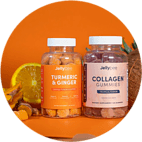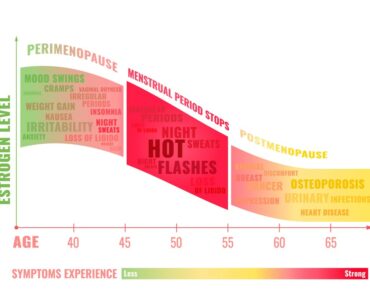 Everyone is looking for the path to health, wellness, and longevity that is tailored for them: What should I eat, what exercises should I do, and what lifestyle choices should I make that are right for me? Too often, though, our healthcare uses a one-size-fits-all approach that doesn’t consider a person’s unique blueprint.
Everyone is looking for the path to health, wellness, and longevity that is tailored for them: What should I eat, what exercises should I do, and what lifestyle choices should I make that are right for me? Too often, though, our healthcare uses a one-size-fits-all approach that doesn’t consider a person’s unique blueprint.
However, understanding a person’s genes and uncovering how genes uniquely impact a person’s systems can provide that tailored healthcare approach — which is what we do here at Dr. Gala Health Coaching. How tailored? A genetic test can reveal cellular and system function, cardiovascular health, nutrient absorption and processing, and energy and activity levels. But these aren’t just “fun to have” facts about a person’s body; they’re insights on which you can take action.
Here are some personalized recommendations that could result from a genetic test based on some sample clients.
Based on Client A’s history, lifestyle, and genetic test, we might recommend the following:
- We found that their genes impact detoxification, so we could recommend foods like raw broccoli, cauliflower, and cabbage to help with detoxification.
- If we know that Client A works in a workplace where they’re exposed to toxins, we can recommend lifestyle changes that will help ease their toxic burden, knowing that their body already has a hard time with detoxification.
- We could also recommend supplements like sulforaphane that can help with detoxification and anti-oxidation.
- To continue to reduce oxidative stress, we will also recommend foods like onion, garlic, green tea, and grapefruit.
- If their genes impact methylation, or the ability of their cells to repair themselves, then we could recommend foods high in B vitamins, like leafy greens, legumes, nuts, and seeds.
- Recommending a supplement like a B-complex vitamin and magnesium threonate can also help improve methylation as well.
- If their genes have trouble processing choline, we could recommend quality protein that provides choline, like wild-caught fish, free-range poultry and eggs, and grass-fed meats.
- Suppose we find that their genes impact inflammation. In that case, we can recommend foods like chili peppers, berries, olives, dark chocolate, brazil nuts, red cabbage, turmeric, rosemary, and holy basil that can reduce inflammation.
- Another way to decrease inflammation is to increase exercise, and the genetic test tells us that exercises like swimming and cycling will be perfect for this client.
- We can also prescribe Omega 3 and DHA supplements to help reduce inflammation as well.
For Client B, their lifestyle, history, and genetic test are different, so here’s what we would recommend:
- We found this client’s gene variants impact oxidative stress so we would recommend foods that provide mineral co-factors, like zinc, copper, selenium, and manganese, to upregulate important anti-oxidant enzymes produced inside the cells and foods that provide natural anti-oxidant effects like chili peppers, olives, beetroot, pomegranate, and berries.
- We are also aware that oxidative stress impacts inflammation and detoxification functions in the cells, therefore we recommended a good quality omega three fish oil supplement as the client also reported not eating fish regularly. We also noted a high impact in her fatty acid nutrient pathway that confirmed the importance of this recommendation.
- We found that our client’s genes impact hormone metabolism and recommend a diet that supports hormone metabolisms such as the intake of food rich in B-vitamins, magnesium, and fiber, – so leafy greens, legumes, pistachios, sesame, and pumpkin seeds.
- We also recommended the client avoid exposure to endocrine disruptors such as BPA, phthalates, and parabens in plastic containers and certain personal care products.
- We recommend Calcium-D glucarate, which prevents the reabsorption of potentially toxic metabolites from the gut.
- We noticed that poor sleep was reported by our client and gave guidelines to support a better circadian rhythm to prevent further oxidative stress damage from lack of sleep and help regulate hormones such as cortisol that impact the hormone pathway.
- Our client’s report revealed high impact in genes that control recovery from exercise. We, therefore, recommend gentle exercises, massage, and stretch, to help support recovery while still ensuring enough activity to boost dopamine levels and help modulate inflammation.
- Additionally, we could recommend zinc, vitamin A, vitamin C, and hydrolyzed collagen to help with joint health as well.
- We recommended relaxation techniques to support our client’s ability to manage stressful situations at work. The client’s mood and behavior pathway revealed a higher sensitivity to stress. We added a supplement like L-theanine (naturally found in tea and mushrooms) to help increase GABA, serotonin, and dopamine levels to help balance neuro-chemicals.
- After further testing, we found that our client has low levels of plasma Vitamin D and decided to add a supplement as the genetic results indicate a genetic impact in vitamin D metabolism.
Helen is one of our current clients, named Helen, to protect her identity. A middle-aged woman presented to our service with a history of moderate perimenopausal symptoms, including hot flashes, hair loss, skin dryness, weight gain, and often experiencing sadness and mood swings. She works in the legal industry and is constantly exposed to a fast-moving work environment, which produces stress on her. The symptoms have intensified recently, and she has not been sleeping well, leaving her without the energy she needs to achieve the high performance her team expects from her. She is desperately looking to improve her health.
After her first consultation, she enrolled in our ©WoMen (Fabulous women in menopause) program. She agreed to go through genetic testing right away. Because the genetic test takes between 4 and 6 weeks, we began by walking her through the 10-day Menopause relief self-care program, followed by mild 21-day detoxification combined with meditation and motivational interviewing to prepare her body and mind for amazing transformations. She was feeling much better by the second week. Here are the recommendations we made for her after receiving her genetic test results, which identified the top 3 most potentially significant pathways where Helen will likely see the biggest impact on her health, based on her unique genetic profile.
1. Helen’s genes highly impact methylation: Methylation is not just responsible for how we repair genetic material, but also how we make energy, respond to stress, handle inflammation, how well our cells detoxify, and how our brain chemistry works.
2. Helen’s genes highly impact blood Pressure: Blood pressure indicates how hard the heart is working to pump blood around the circulatory system and is used to confirm good health. High blood pressure can cause damage to blood vessels, delicate tissues in organs, and systems in the body. Genetic variance impacts the ability to contract and relax blood vessels and fluid balance volume within them.
3. Helen’s genes highly impact mood and behavior: Genetics affects her ability to manufacture and balance chemicals in the brain necessary to manage mood, anxiety, depression, addiction, and related behaviors. In addition, diet and lifestyle choices impact brain chemicals and may require adjustment.
We recommended the following:
 Diet
Diet
1. We helped her create a diet that includes foods high in B-complex vitamins and magnesium e.g., such as leafy and cruciferous vegetables (raw), avocados, citrus fruits, legumes, poultry, eggs, nuts, and seeds.
2. Eat quality proteins with essential building blocks for methylation like wild-caught fish, organic poultry, grass-fed meats or
wild game, garbanzo beans and edamame.
3. Support toxin breakdown by including cruciferous vegetables, adequate fiber, green and black teas.
 Lifestyle
Lifestyle
1. Use relaxation techniques to reduce exposure to stress hormones that may burden the methylation cycle, e.g., meditation, yoga, Qi Gong, and massages.
2. Consciously limit exposure to substances that overload the methylation cycle, including medication, alcohol, and endocrine
disruptors.
3. Avoid external toxins like pesticides, plastic packaging, Teflon cooking utensils, cleaning products, cosmetics, and synthetic clothing. Also, eliminate toxins that cause DNA damage, e.g., heavy metals like arsenic, cadmium, lead, pesticides, and contaminated drinking water.
 Supplements
Supplements
1. B vitamins include 5-MTHF (200-400mcg), Methyl-B12 (100mcg), vitamin B2, B3, and B6 (P5P).
2. Zinc (10-30mg) and Magnesium (250-500mg).
3. Sulforaphane from whole broccoli sprout powder yielding 20mg (or as recommended by a healthcare practitioner) and choline.
Personalized Care and Action
As you can see, making recommendations based on genetic testing is more specific and personal and at a much deeper level than simply treating surface-level symptoms. Because a genetic test can reveal how your genes impact your body — from how your joints work, to how well your cells are at detoxification, to what kind of exercise is right for your body — we’re able to make much better recommendations for you. You’ll see much more success with them.
Ready to start your personalized health journey?










Genes and DNA are the building blocks of the body. It makes sense why understanding the genetic makeup of someone can help build a better health plan for them. It also offers unique ways to identify self care methods that are previously unknown.
What methods are used in taking these gene tests and how long does it take to get results?
Hi, Brad! Thank you for commenting on my blog. I am glad you found this information useful and understood how the genetic makeup helps us build a strategy to recover or improve health outcomes. The 3×4 genetic testing is mailed directly from our partner lab (it takes 3-5 days) and results take 4-6 weeks to process. The kit includes a cheek swap collection tube that’s sent back for testing through the mail. Collection can be done at any time of day or night without restrictions on diet or activity levels. Should you need more information, do not hesitate to contact us.
I don’t wear makeup so I believe that I am not the target market when it comes to this article. But I have a partner, a sister and a mother who absolutely love wearing makeup. I will be sure to share this article with them and I will let you know what they think about it. Thank you so much for this wonderful post
Hey, Daniel, thank you for your comment, which prompted me to reconsider the title. It looks like the mention of makeup suggested it was about cosmetics. However, the topic is totally out of that context. I would suggest you go back and read it to better decide with whom to share. The person’s makeup I am talking about here is their nature, as their genetic blueprint. In any case, thank you for commenting.